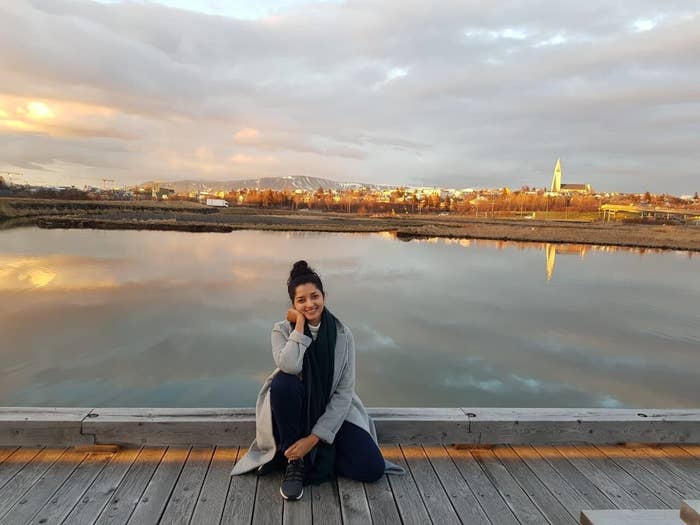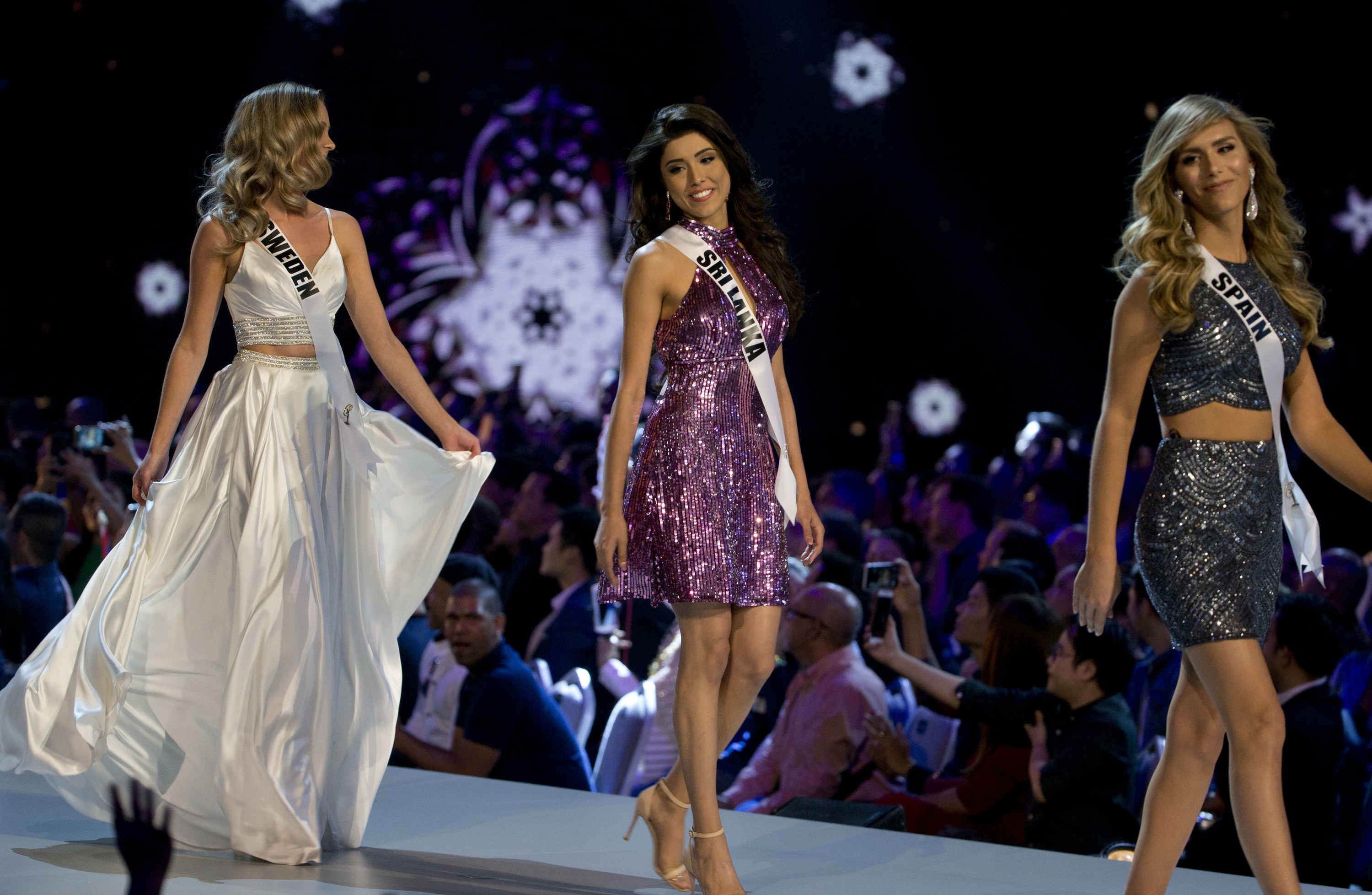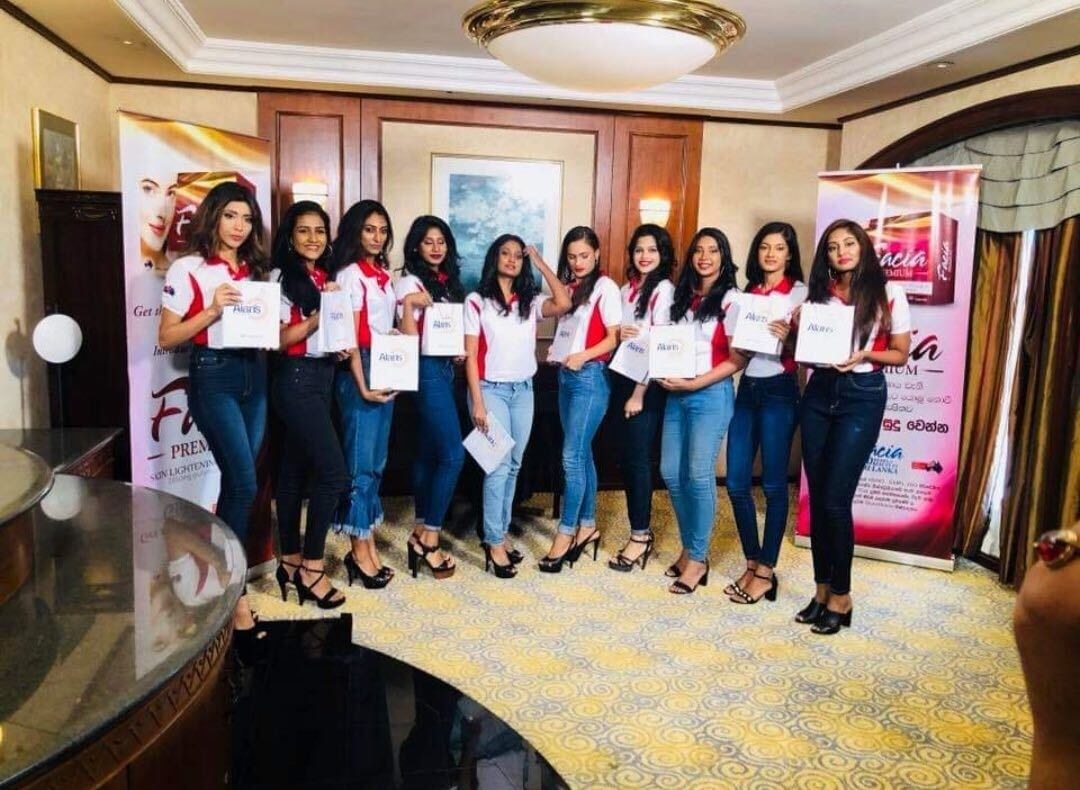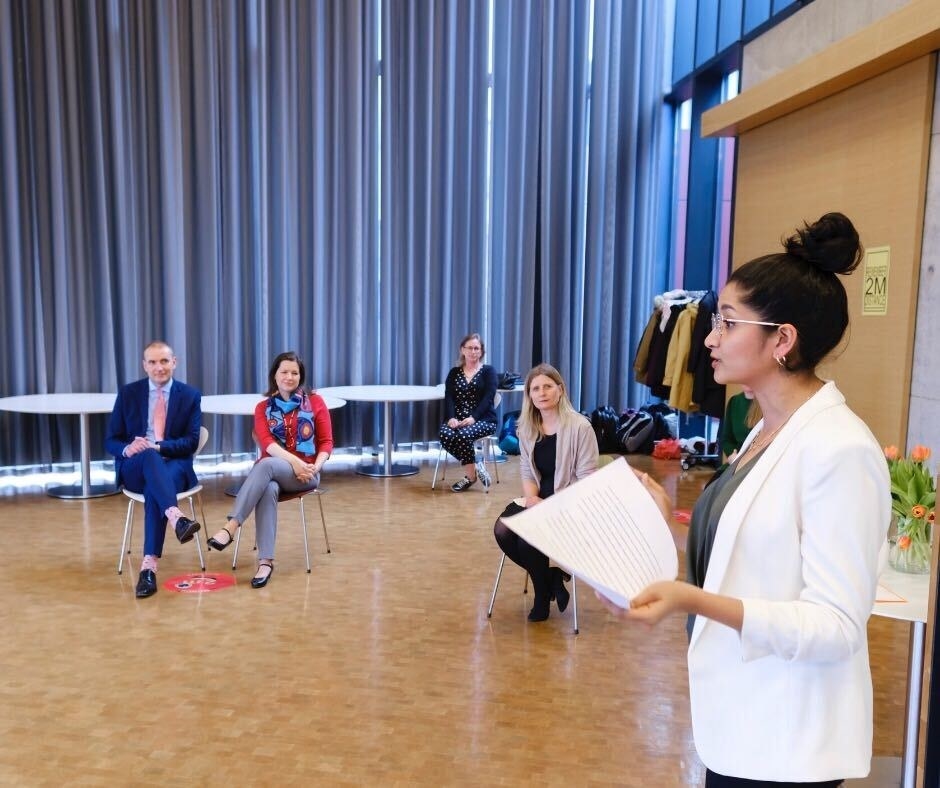
LONDON — Kinita Shenoy ignored the first package. But then a second one arrived at her home in Colombo, Sri Lanka.
Inside were skin lightening creams made by Pond’s, the cosmetics brand owned by consumer product giant Unilever. As the editor-in-chief of Cosmopolitan magazine’s Sri Lanka edition from 2017 to 2018, Shenoy was used to freebies. But the gift box, sent in December 2017, left her confused. She had told Unilever marketers weeks before that she would never promote skin lighteners.
“I was really irked about it," she told BuzzFeed News, "but I decided to ignore it.”
Then Unilever staff started to text her, asking her to post about the products on social media. Irritated, Shenoy told her staff to post a story on her magazine’s Instagram account thanking Pond’s for the box.

But on her personal Instagram, she posted a different message.
“I appreciate the lovely packaging but I’m not really on board with the concept of ‘White Beauty,’” she wrote, blurring out Pond's brand name. “Aren’t we past the point where we tell wonderful, melanin-popping Asian women they need to make their skin look whiter?”
When Shenoy wrote her post, she had no idea Unilever representatives would unleash a pressure campaign on her employer for positive coverage of White Beauty products — one that would turn her life and career upside down, she later said, and lead to her leaving journalism altogether.
Shenoy's experience was not unique. Consumer product giants like Unilever, Johnson & Johnson, and Procter & Gamble exert a huge amount of influence over the fashion and beauty industries. In countries like Sri Lanka, among the most popular products these companies sell are skin whitening creams.
“All I said was that we shouldn't tell little girls to bleach themselves. It's not a radical thing to say,” Shenoy said. “This isn't a tacit thing. It's an intentional and violent way to deal with things.”
Cosmetics make up only some product lines for Unilever, a $140 billion consumer product company headquartered in London. But in South Asia, it's well-known for a skin whitening cream called Fair and Lovely, which like other whitening creams uses niacinamide to suppress melanin in the skin.
“All I said was that we shouldn't tell little girls to bleach themselves.”
After years of pressure from campaigners and a new wave of criticism amid the Black Lives Matter movement, Unilever said in June it would stop using words like “whitening” to describe its products. Competitors including Johnson & Johnson and L’Oreal have recently taken similar steps. Unilever has stopped short of Johnson & Johnson's decision, announced on June 22, to cease selling two lines of its skin lightening products entirely.
But critics say changes in branding do not go far enough. Shenoy and others in Sri Lanka's fashion industry described intense pressure on journalists, models, influencers, and beauty pageant competitors to use and endorse skin lightening products.
In response to a list of detailed questions about this article, a Unilever spokesperson said the company met with Cosmopolitan Sri Lanka after Shenoy’s Instagram story to “have a constructive conversation and address any concerns.”
“In this meeting, a member of the team exercised extremely poor judgment by insisting that Cosmopolitan give the product positive editorial coverage,” the spokesperson added. “Unilever prides itself on always operating at the highest ethical standards and apologized for this significant misjudgment.”
Unilever now has a strong relationship with the magazine, she added.
In South Asia, skin whitening products are part of a colonial history in which people with fairer skin had better job, housing, and marriage prospects. Beginning in the 1970s, Unilever’s Fair and Lovely was among the first to foreign brands tap the market, and for decades advertised fair skin as the key to wealth and romance. But in recent years, a backlash against the products has grown from critics who say they promote discrimination against people with darker skin tones. Last month, after Unilever posted a Black Lives Matter message on Instagram, South Asians flooded the comments, calling the company hypocritical for selling Fair and Lovely.
On June 25, the company bowed to pressure — in a limited way. It's keeping the product on the market, but rebranding it as Glow and Lovely.
“Fair and Lovely is a holy grail product, and it has the largest distribution channels and reach in South Asia,” said Nina Davuluri, who was the first Indian American to be crowned Miss America and is at work on a documentary about skin lightening cosmetics. “How Unilever executes their rebranding strategy and new advertisement campaigns will be incredibly telling of their true intentions.”

Like Shenoy, others in the beauty industry in Sri Lanka said they faced heavy pressure to use and endorse skin lightening products. Among them is Ornella Gunesekere, who won the Miss Universe Sri Lanka competition in 2018, but said she nearly lost her crown after refusing to endorse skin lightening products made by a Sri Lankan brand called Facia, the pageant’s chief sponsor. That year, a Facia representative made a presentation to the contestants, in which she used the n-word and also told them “dark skin is ugly” and ‘to win Miss Universe you have to be white,” according to three women who heard the presentation — Gunesekere, Natalee Fernando and Alma Erandi Weerasinghe.
“I was boiling. I could not believe it,” Gunesekere said.
Fernando, who was the second runner-up, was similarly livid.
“We could see her looking at the darker girls,” she said. “It was so awkward sitting in that room.”

Amanda Ferreira, assistant general manager for marketing at Alaris, the company that makes Facia products, said the representative, who conducted the presentation in the Sinhala language, had used the n-word, but wasn’t aware it was offensive.
“She was trying to explain how African countries use harmful bleaching products to whiten their skin, and we at Facia do not promote harmful skin whitening products,” Ferreira said, adding that the representative apologized at the time. The pageant contestants who spoke with BuzzFeed News also said that the representative walked back some of her remarks after several of the women objected.
Ferreira, who said she also attended the presentation, said the representative never said that dark skin is ugly or that to win Miss Universe, you have to be white.
The Miss Universe organization declined to offer an on-the-record comment on what took place.
All three women said they were shocked and, along with other contestants, began to argue with the Facia rep. Gunesekere, along with a few other contestants, wanted to drop out of the pageant. If she had at that stage, she would have been obligated to pay the pageant 500,000 Sri Lankan rupees ($2690) “as damages,” according to a contract seen by BuzzFeed News. She decided to stay after the representative apologized.
The winner of the pageant was set to appear in a TV ad for Facia. Gunesekere said that after she won, she told the company that she would not endorse skin whitening products. Only after she arrived at the screen test for the shoot did she learn the ad would include whitening creams, among its other products. She refused to take part in the ad and walked out. “We were asked to sell something we didn’t believe in at all,” said Fernando, who was also at the screen test. “Ornella and I spoke out at risk of getting kicked out of the pageant.”
“The boys and girls coming up don’t know what to do. So you bleach your skin and try to become white.”
Afterward, a production company executive implied she could lose her crown, according to text messages Gunesekere shared with BuzzFeed News. Facia said it had never sought to remove her title. But it stopped sponsoring the pageant, and there has not been a Miss Universe Sri Lanka pageant since.
Publicly opposing skin whitening has career consequences in Sri Lanka, said Kalpanee Gunawardana, a model and entrepreneur who said she was also repeatedly approached to promote Pond’s White Beauty products and has refused. The blowback hasn’t been confined to beauty and cosmetics.
“When I started speaking out about colorism, clothing brands didn’t want to associate with me,” she said. “They said ‘she’s fussy, she’s a social justice warrior.’”
Tymo Carvalho, a Sri Lankan model and influencer, said only well-established models can refuse to promote skin whitening products.
“If you are already famous or if you’ve made a name for yourself in the industry, of course you can pick and choose what you promote,” he told BuzzFeed News. “But the boys and girls coming up don’t know what to do. So you bleach your skin and try to become white.”
“After a while, you realize what you’re doing is wrong,” he added.

After Unilever representatives in Sri Lanka saw Shenoy’s post about Pond’s White Beauty products, two of its executives in Sri Lanka told the magazine's publisher that she should either be fired or publish two pages in the magazine every six months describing how she used Pond’s skin whitening creams and encouraging other women to use them as well, according to Shenoy. If neither happened, they threatened to pull Unilever's ads from the magazine. Unilever did not directly respond to a question about whether its representatives had sought to have Shenoy fired.
Unilever was a major advertiser, and the publisher told her the magazine could go under if she didn’t give in, Shenoy said, but she stood firm.
“Unilever then retracted every single brand advertising for the publication,” said Shenoy. “It was a lot of money. They own a whole portfolio of brands.”
She was living, she said, in a “state of fear.” A review of Cosmopolitan Sri Lanka issues in 2018 shows ads for Unilever brands disappearing from the magazine between February and May, and resuming in June. Hearst did not respond to requests for comment.
Shenoy met Aritha Wickramasinghe, a lawyer specializing in international finance and LGBTQ rights, in February 2018, after she had fought with her publishers for weeks. He remembered that he had met Unilever CEO Paul Polman a couple of years before, at an awards dinner where Wickramasinghe was given a prize for his activism.
On Shenoy's behalf, Wickramasinghe wrote an email on Feb. 19, 2018, to Polman (which he later shared with BuzzFeed News).
"I am sure you agree that this is shocking."
"I am sure you agree that this is shocking," wrote Wickramasinghe. "I hope you will be able to take decisive action on this matter so as to ensure that the rest of your organization abides by the values and principles you advocate."
Polman wrote back the next day to say that he was unaware of the incident, but would look into it. “Let’s get the facts and then see," he wrote. "At a minimum we should protect freedom of speech.”
Polman, who stepped down in 2018, did not return a request for comment.
Two days later Polman forwarded Wickramasinghe an email that Unilever Sri Lanka chair Carl Cruz wrote to Sanjiv Mehta, the head of Unilever’s subsidiary in India.
Cruz, who is now the managing director for Unilever West Africa, another major market for skin lightening products, did not return a request for comment.
In the email, Cruz said he had contacted the chair of Cosmopolitan magazine in Sri Lanka “to atone for the actions of colleagues in Unilever Sri Lanka.”
“I reiterated the fact that what transpired did not do justice to the high standards and values we all live by in Unilever,” he added, saying Unilever would resume advertising in Cosmopolitan Sri Lanka.
On top of the forwarded email, Polman wrote, “Issue closed. Thanks for pointing out. Warm regards.”
After the intervention from Unilever’s CEO, the company started buying ad space from Cosmopolitan Sri Lanka again.
“Even now I am speaking up but I am afraid. I am afraid of what will happen.”
But Shenoy said her relationship with her bosses had permanently soured, and she left her job and journalism entirely in the spring of 2018.
“I was a woman on my own. I had to pay my rent and medical bills with my salary. I had no safety net. Unilever knew what they were doing by threatening me, and that stuff stayed with me and was the reason I shut up for two years afterward,” Shenoy said. “Even now I am speaking up but I am afraid. I am afraid of what will happen — what they will do.” ●
